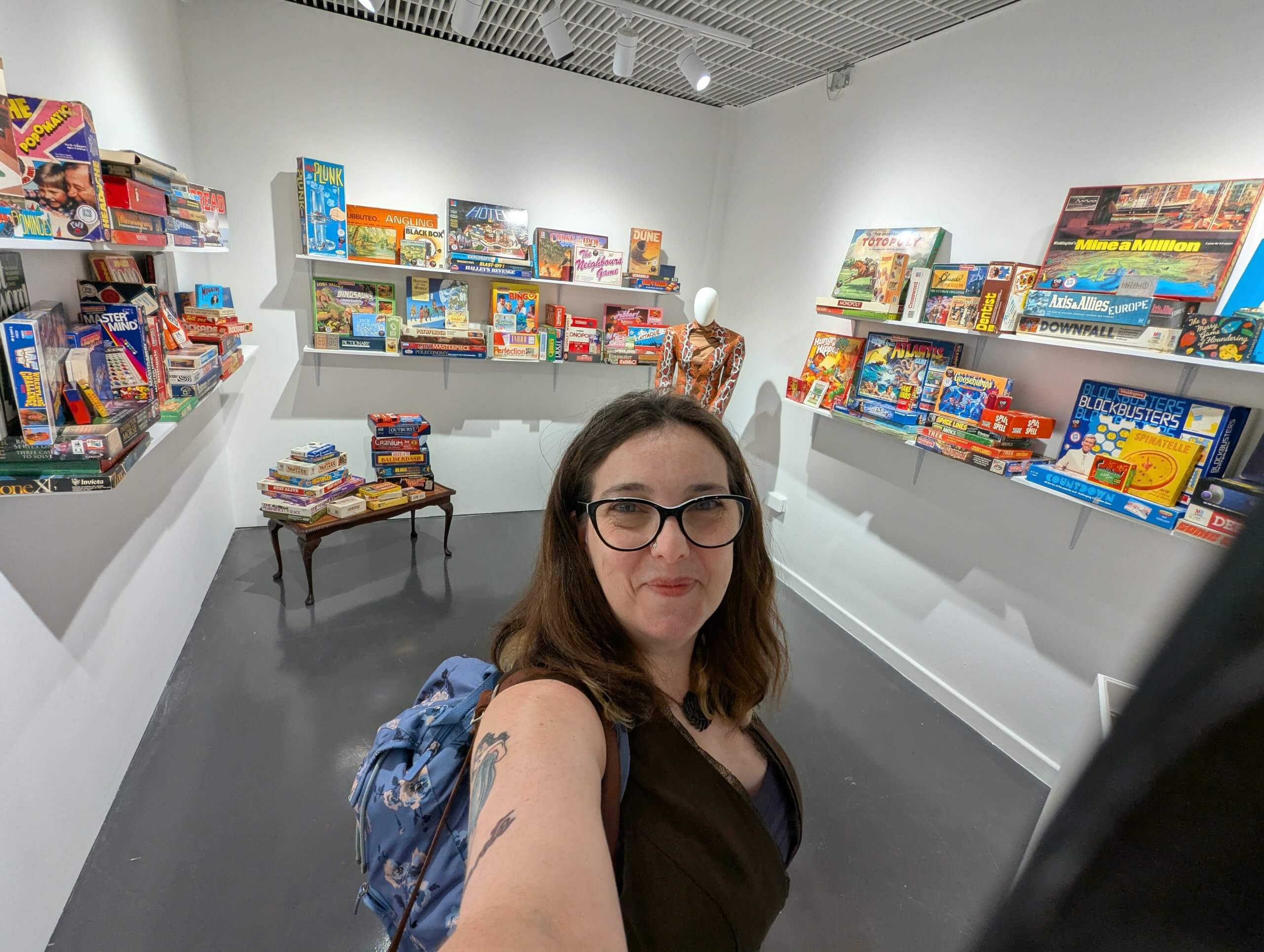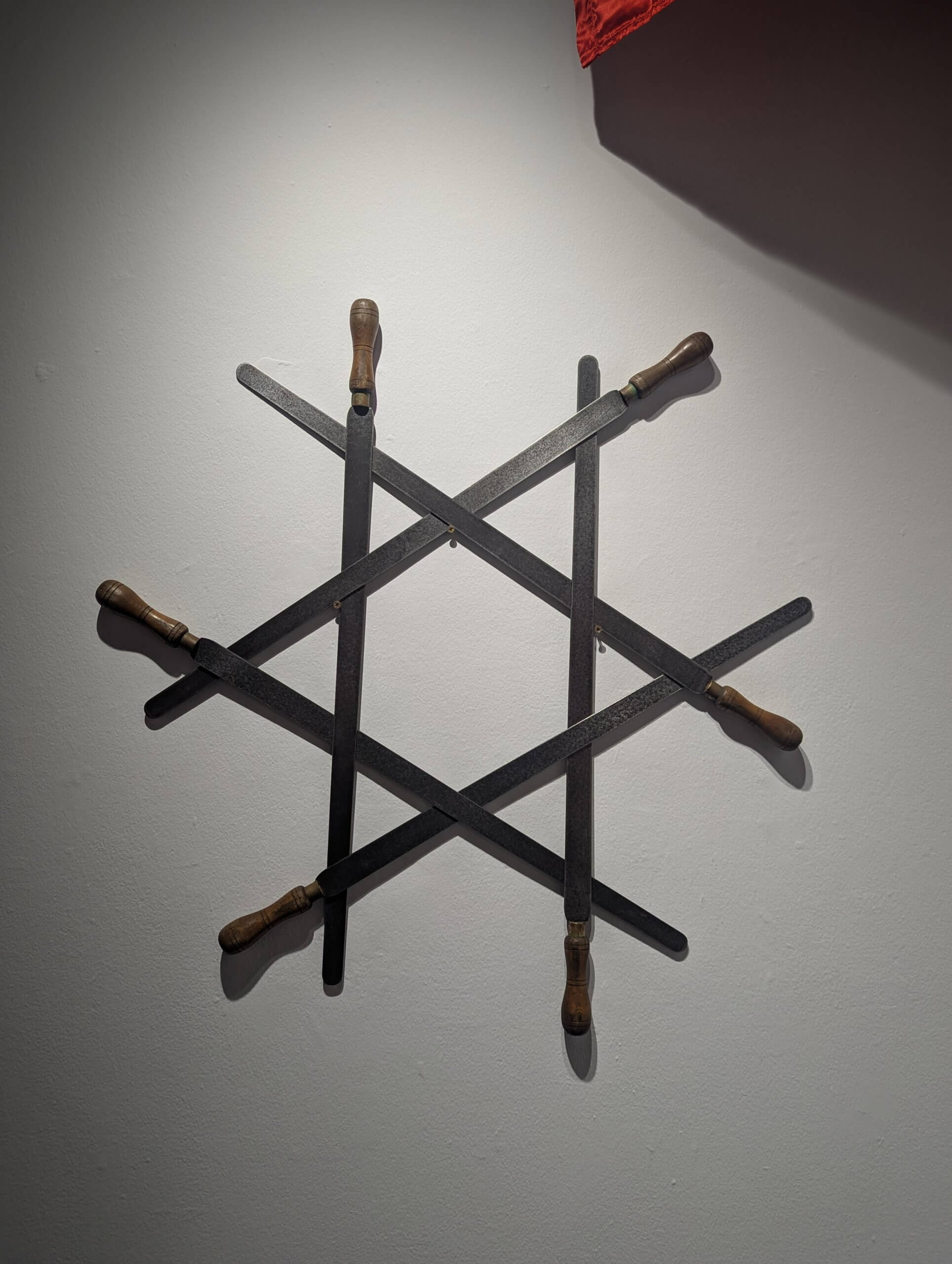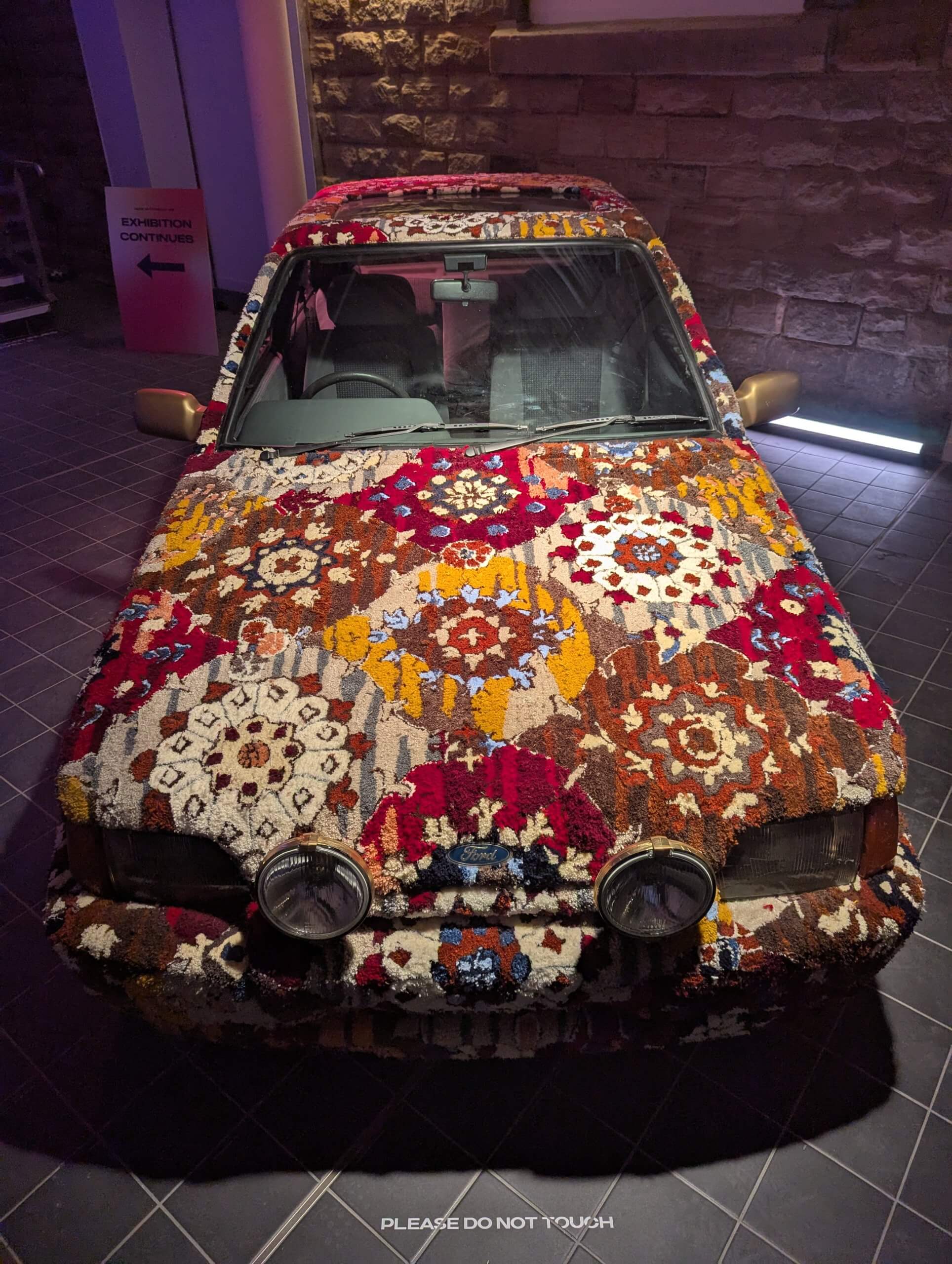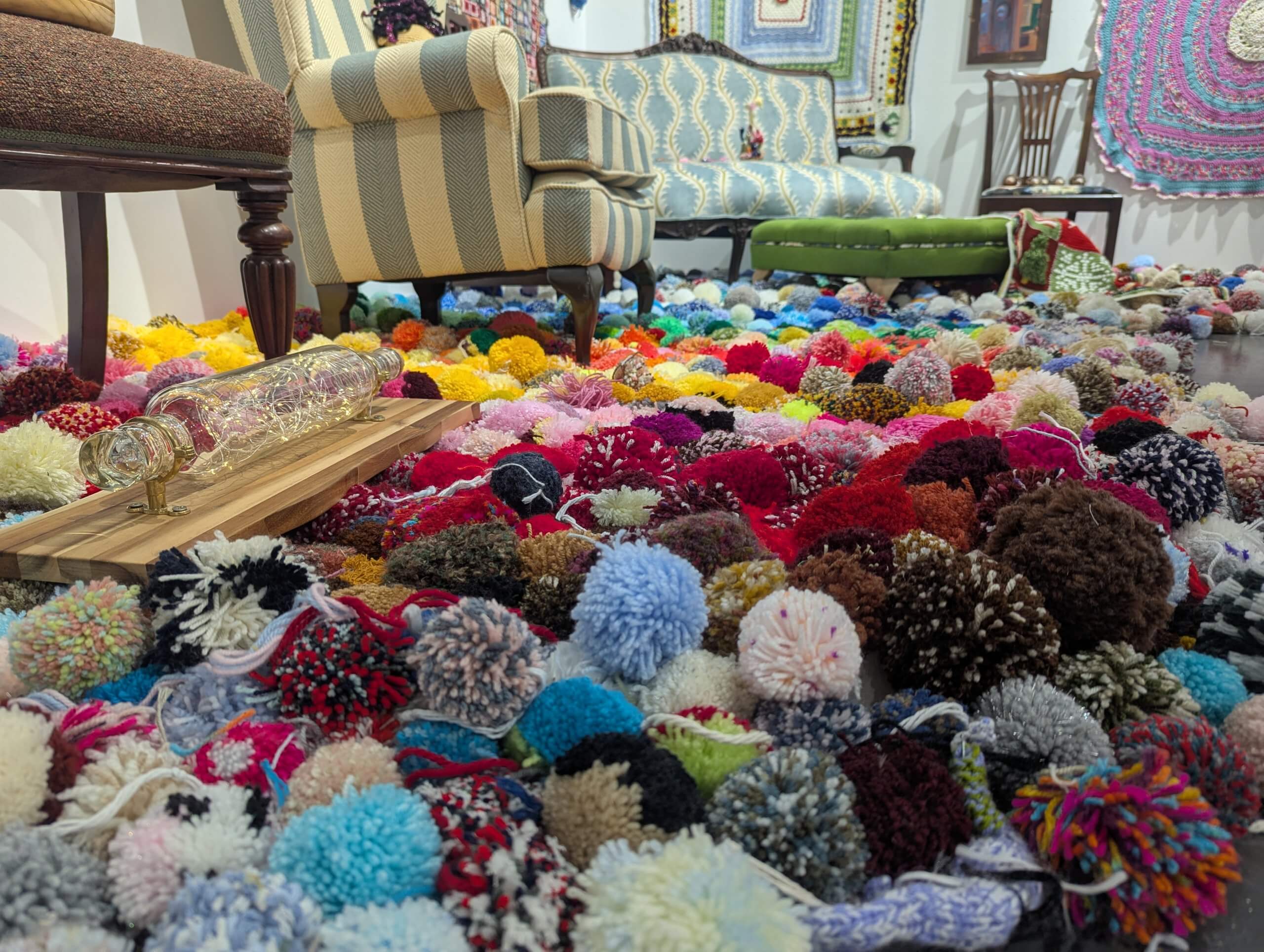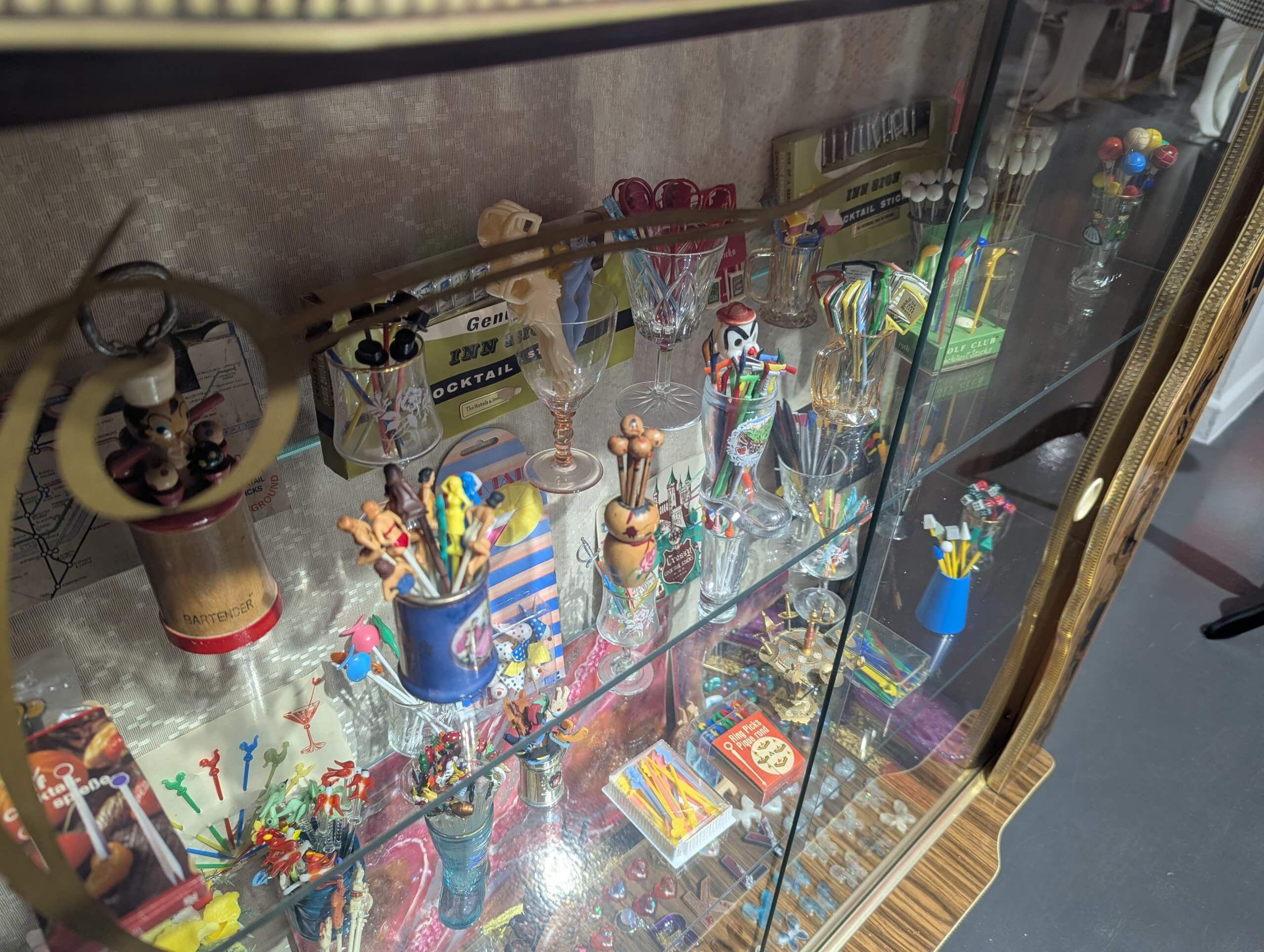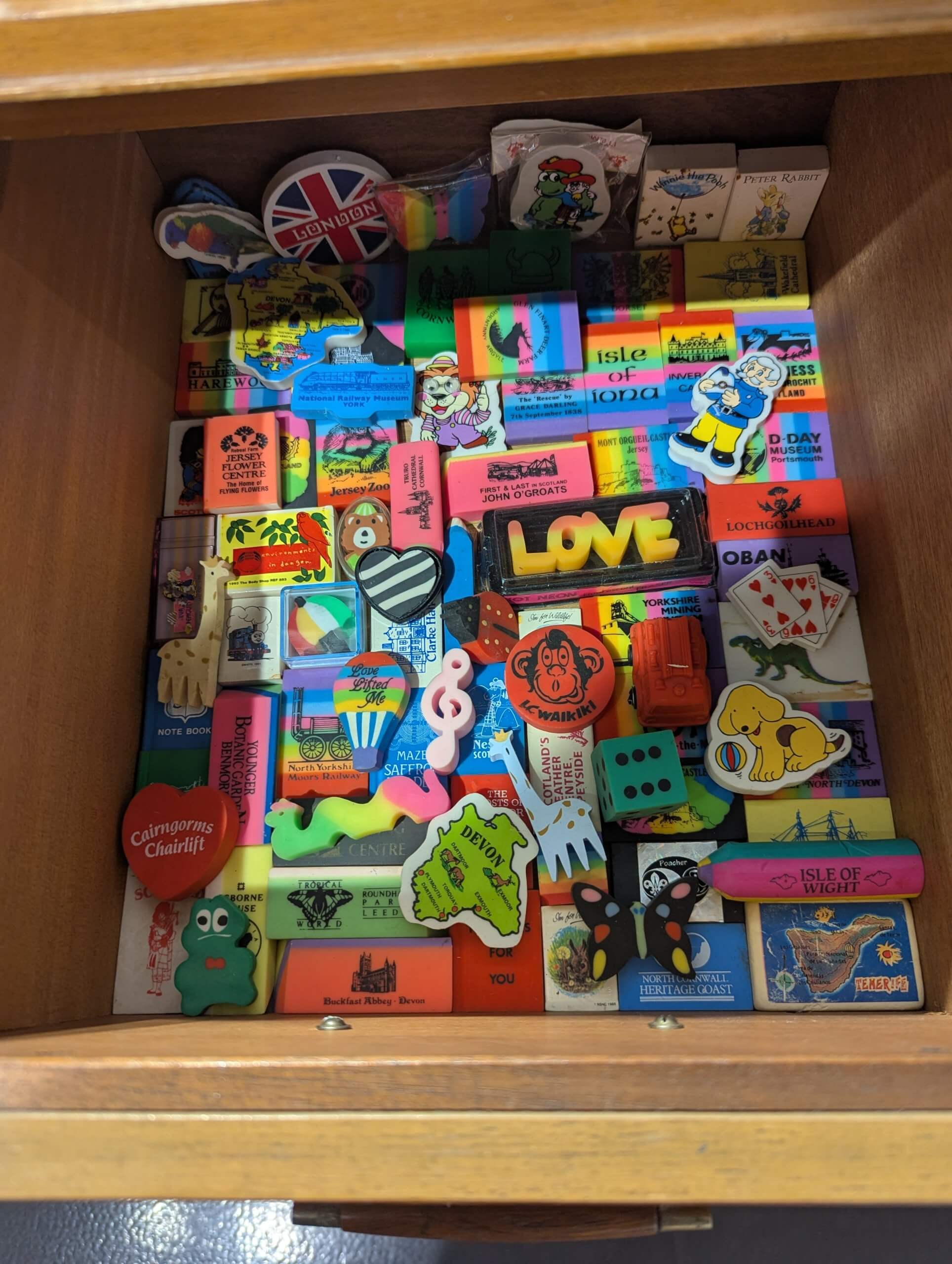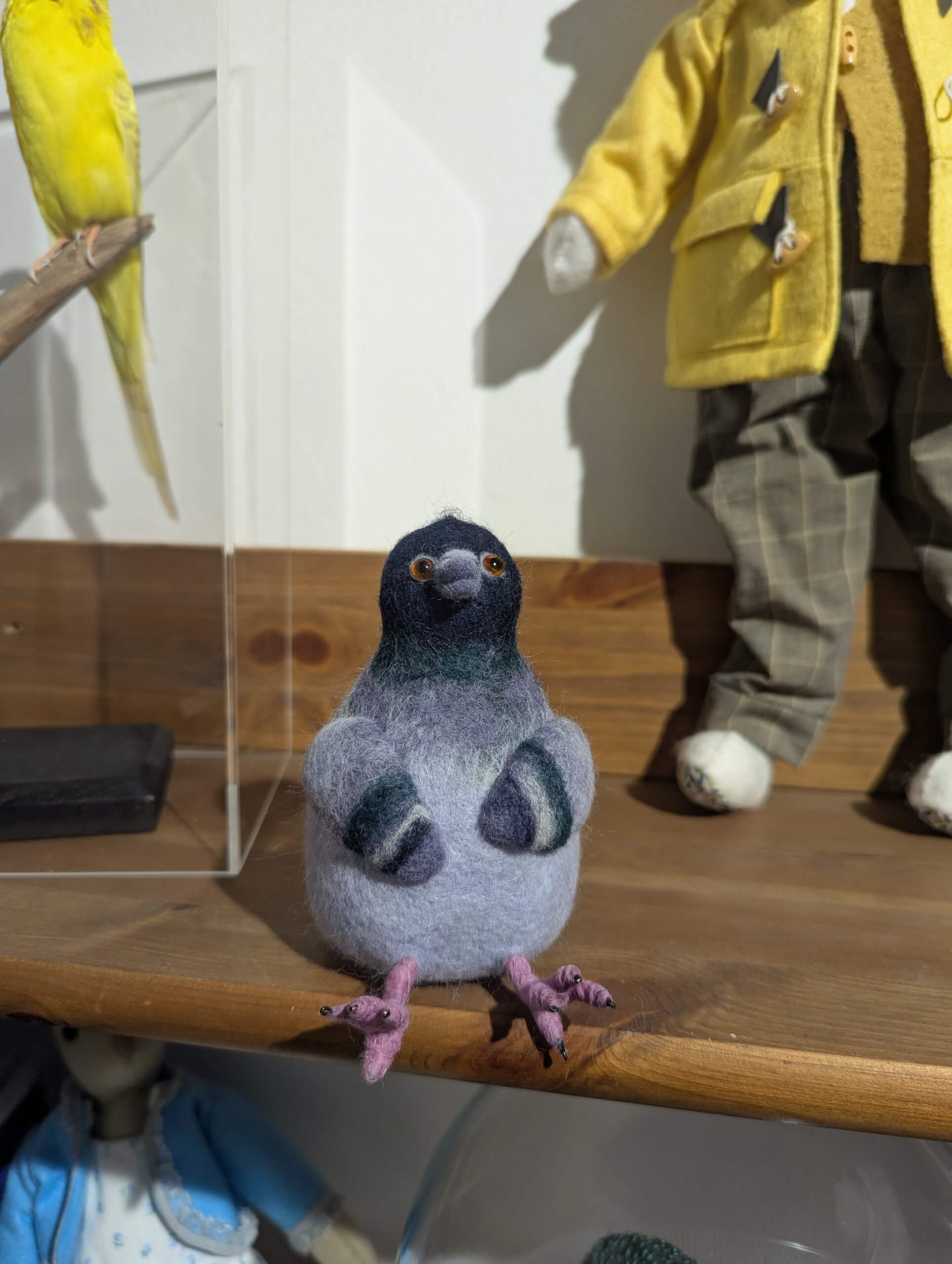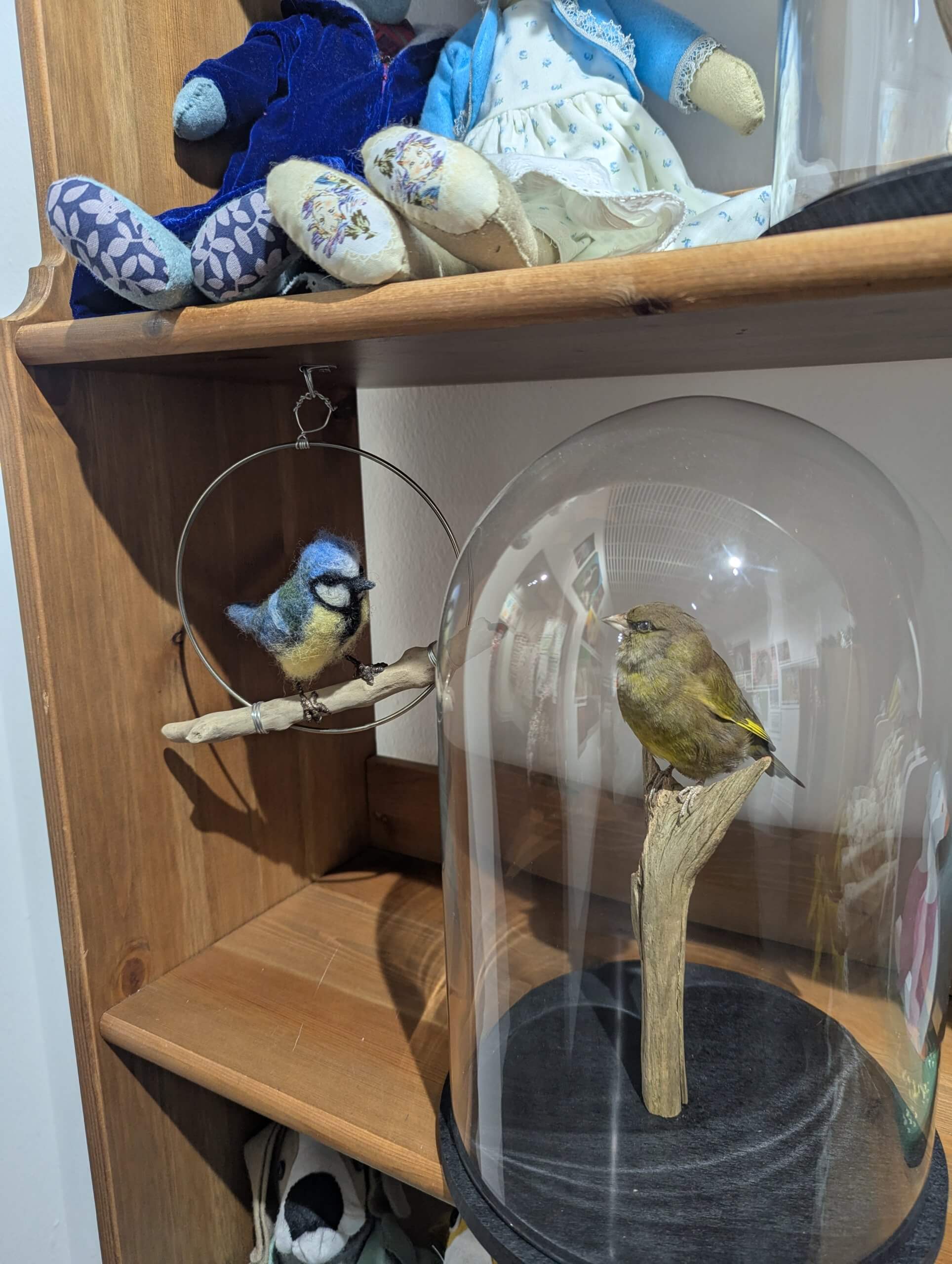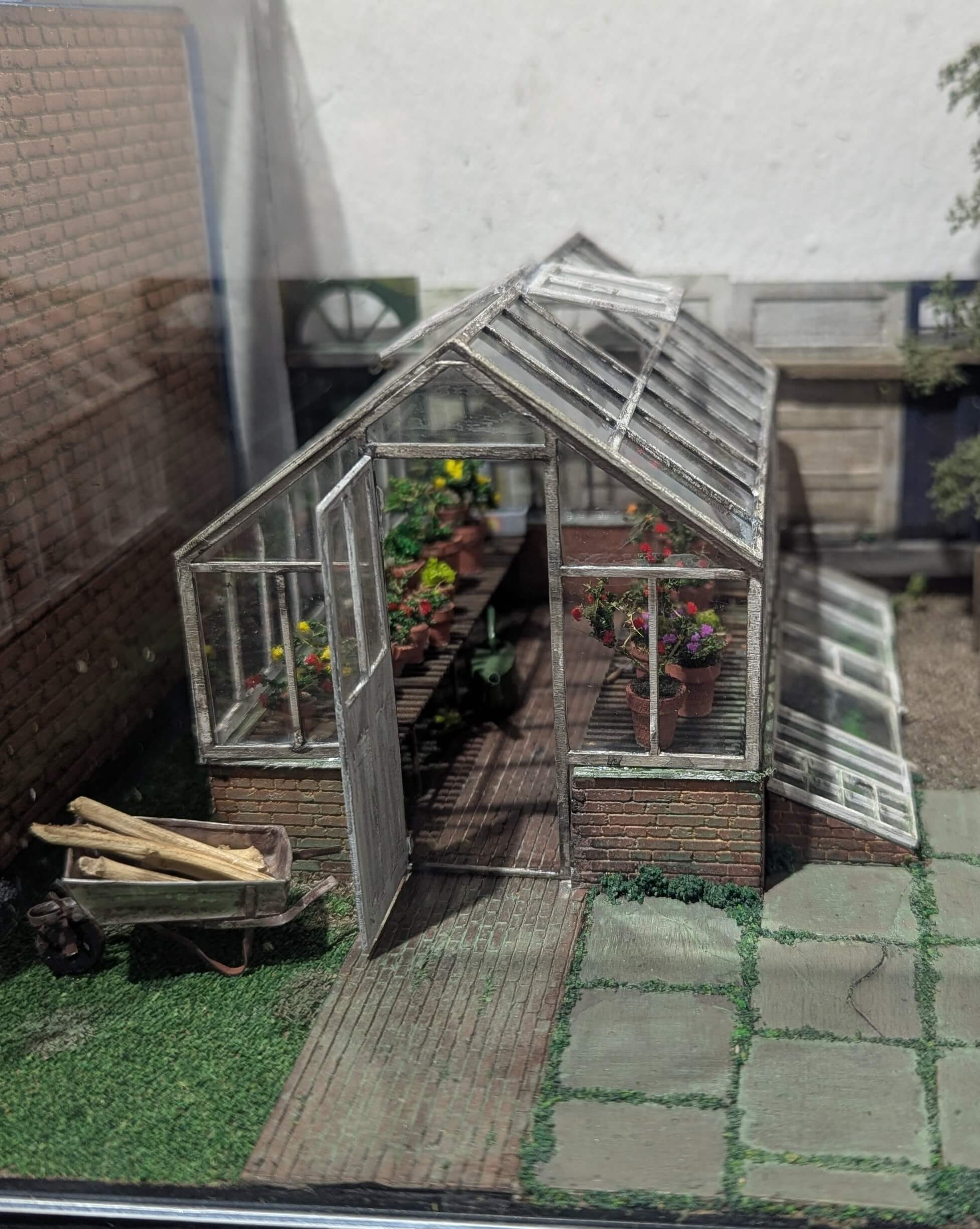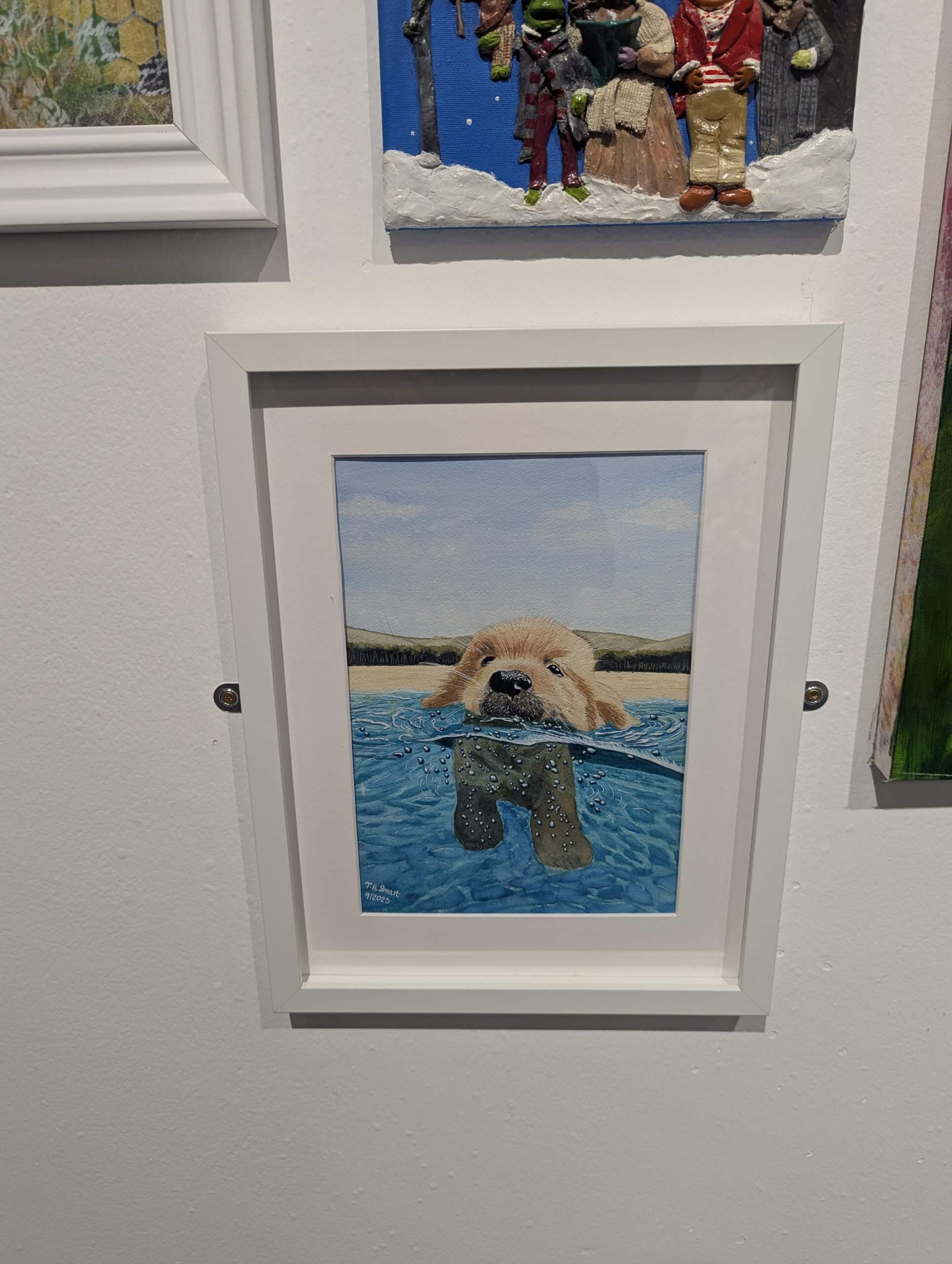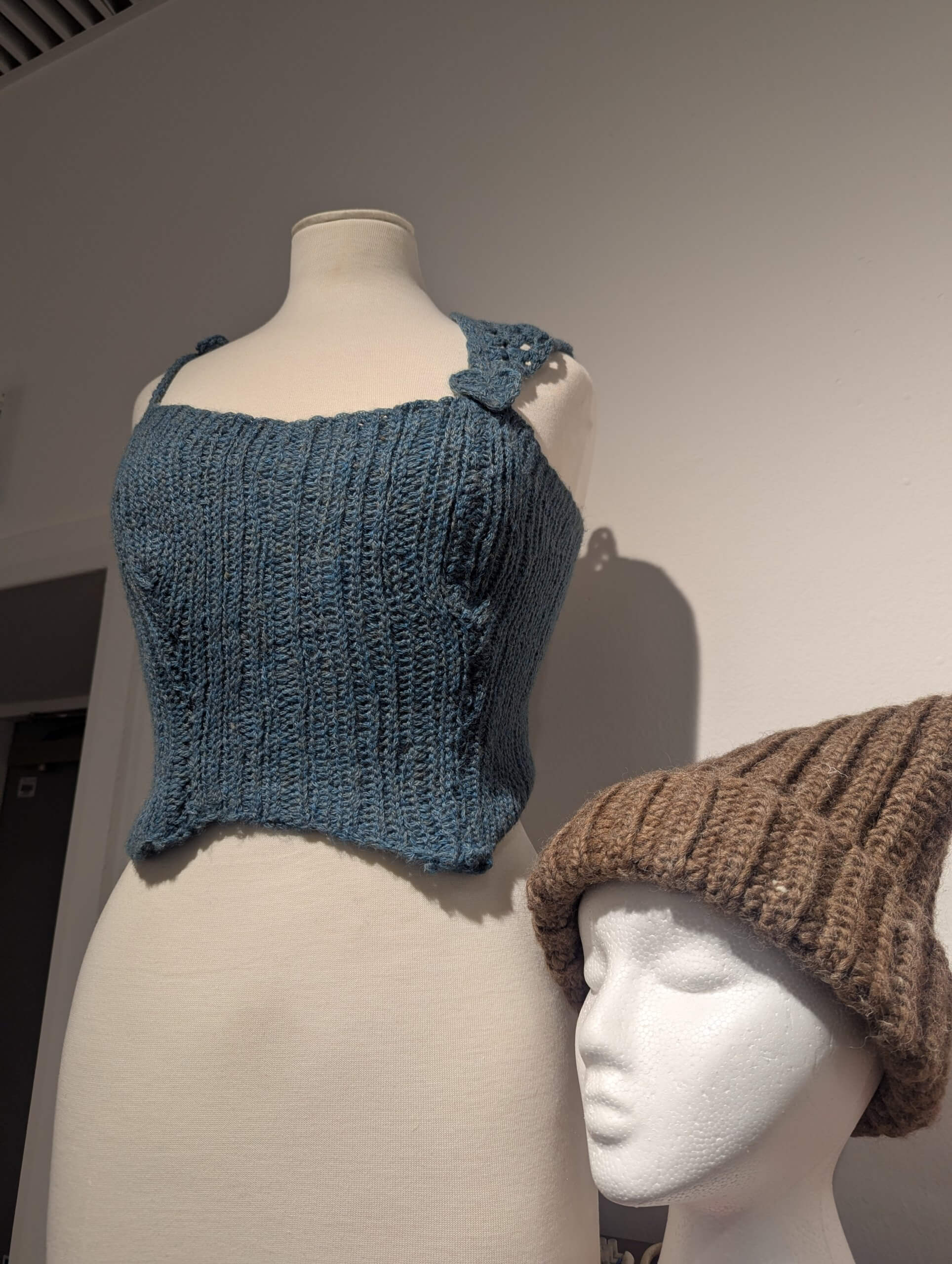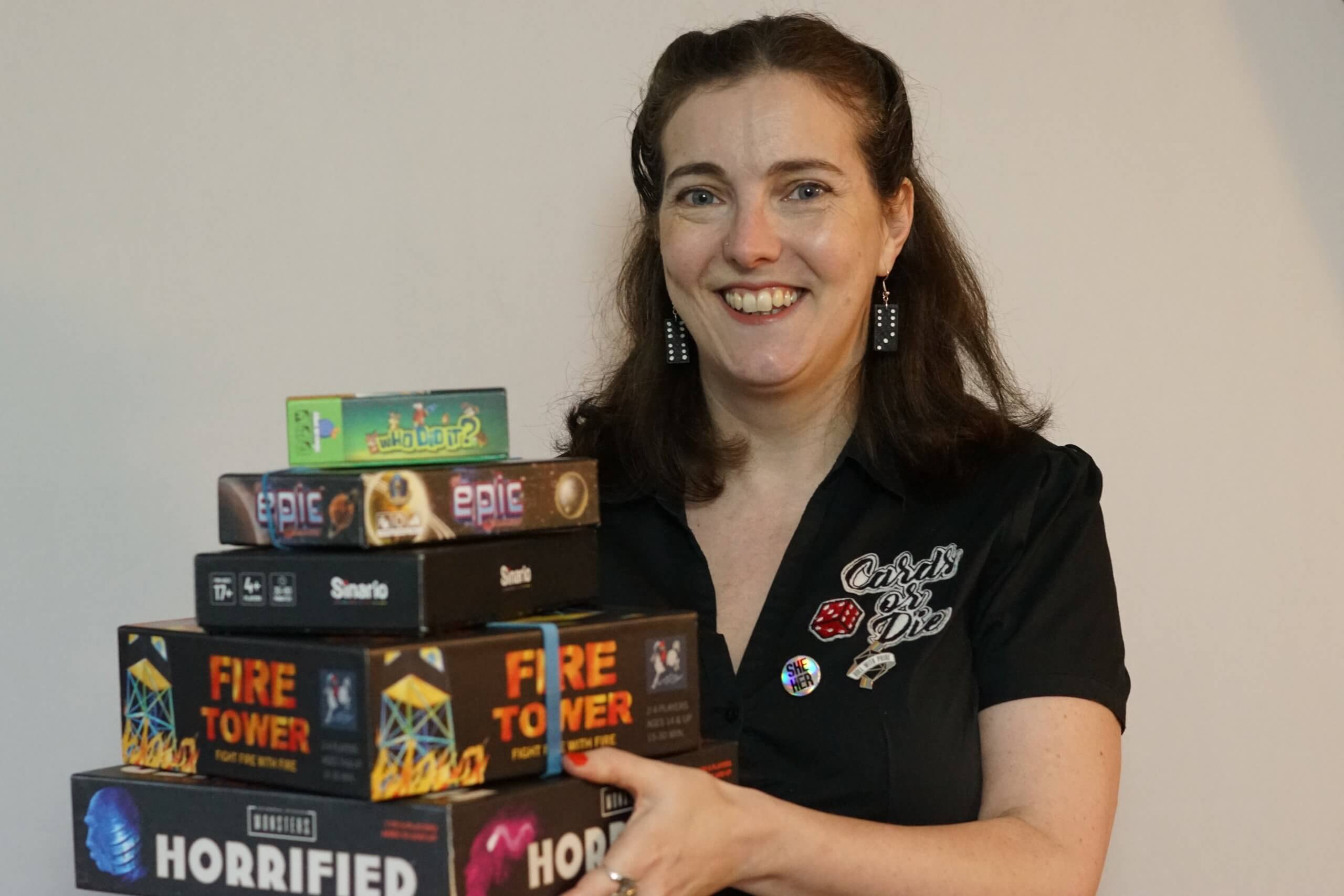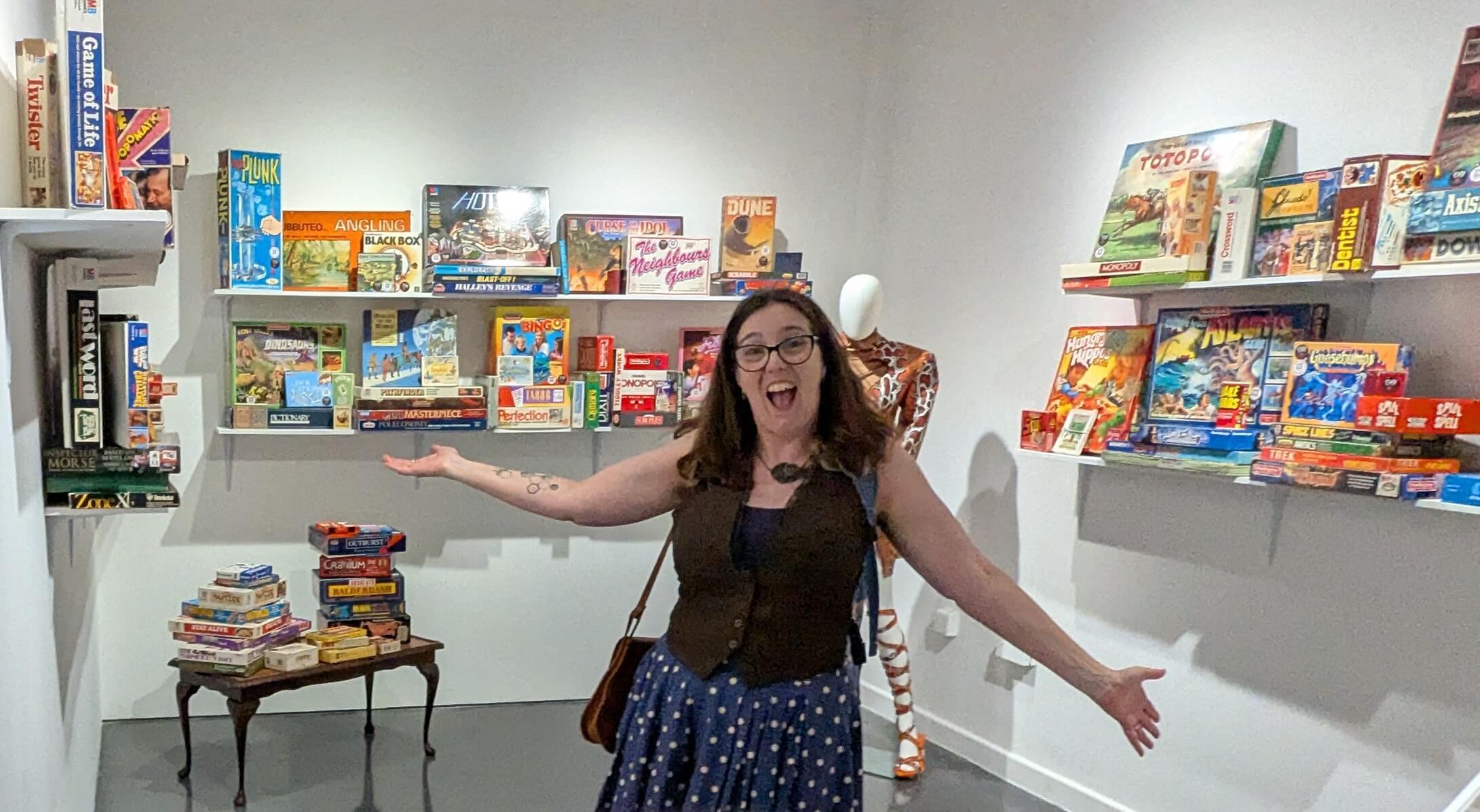
As part of Artangel’s ‘Come as you really are’ exhibition I’m delighted to be collaborating with Barnsley Civic, to display 155 vintage games from the 1940s up to the 1990s – fairly horrified to have included the 90s but here we are! The exhibition opens on the 24th May and runs until 8th August 2025. It is part of a UK wide project led by Hetain Patel and Artangel working with 13 partner organisations including Barnsley Civic. In addition to Patel’s artworks such as Somerset Road (2024), a Ford Escort rugtufted in the pattern of the artist’s grandmother’s living room carpet, and Fiesta Transformer (2013); the exhibition will also showcase a wide variety of local people’s hobbies, things they have made, crafted, collected, modified – presenting an alternative portrait of the UK.
There is so much to see at the exhibition from the tiniest origami, a collection of cocktail sticks, dazzling drag couture, crochet, felting, painting, football shirts. There’s so much that I have been twice and I just found the longer I looked, the more I saw. I’ve attached some pics to this blog but they really don’t do it justice.
Plus, visitors have access to parts of Barnsley Civic that have not been open to the public for over 25 years.
The joy of collecting.
As a kid I collected lots of things – erasers of various shapes and smells, badges, the dress up dolls that you cut out from the back of Bunty, postcards and shells among other prized trinkets. In an unpredictable world that – I realise with hindsight – was not built with me in mind, setting out my collections, labelling them and watching them grow gave me immense comfort. I could immerse myself in the certainty of it.
Collecting board games was not viable in the early 80s. With 5 of us in the house, money and storage space was not abundant. Every family I knew had a modest selection of games. We had Guess Who, Connect 4, Kan-U-Go, Equality (a maths based scrabble game; my Mum was a fan of an educational game), a picture lotto game and a clown dice game a bit like Beetle. My older siblings had Monopoly, Masterpiece, Scrabble and Escape from Colditz.
I still remember the excitement of getting Escape from Atlantis for Christmas. I felt like I had joined the ranks of my older siblings. This was mine. It was not to be routinely shared and crucially no one could play it if I wasn’t there. And on top of that, the game itself was awesome – unlike anything I’d played before. Around the same time I got an MB travel shut the box and Perfection – on the basis that I could play them on my own and not ‘pester’ anyone. I was the youngest by 12 years and a big fan of talking at people so they were really gifts for the whole family.
Now, of course there are more low cost ways of getting games – vinted, e.bay, charity shops… then it was a significant gift – we’re talking main present. A main present I was delighted to receive but a collection of games then was very much out of reach.
I feel very differently about my collection of games than I do about my collection of cut out dolls. It is sometimes with a sense of embarrassment that I view my games. I recognise the enormous privilege it embodies – that I am lucky to have both space and funds to have such a collection. I am eternally grateful to the companies that send me free games. Buying a collection of this size would have been impossible.
But at the same time I feel joy and pride in my collection. I was diagnosed Autistic a year ago and in that time I have become acutely aware of how many things I find difficult but my expertise in knowing and teaching the games has been a massive positive. Being able to match people to a game that they enjoy brings me joy. Plus there is still the comfort in cataloguing, researching and labelling it all – the perfect, orderly retreat from a chaotic and demanding world.
All my collections are important to me but this one is different as it is the one that connects me with other people. Sharing my passion with others and seeing people come together and laugh or plot together makes me feel part of something. A feeling that as an autistic person has not always come easily.
Why exhibit the vintage games?
Games offer a direct route back to early memories of playing games with family, of rainy caravan holidays, of days long games of Monopoly on a bank holiday weekend. At events I always have a small selection of vintage games. Notably missing from the exhibition is Hearts from 1914 a ‘thrilling’ dice game. (It’s not actually thrilling but it is adorable and popular at weddings so it’s stayed home with me!). People often pick them up and look at the pictures – I actually met someone recently who was a model for Waddingtons games as a kid. How cool is that?! Sometimes they get them out and play but other times they’ll tell me stories or reminisce with friends – vividly recollecting tales from a simpler time.
The total board games collection is over 600 but the vintage games hold a special place in my heart. On a very practical level it would have been difficult to work out which games to exhibit as I need them for events and it is the modern games which get played the most at events. So my first consideration was practical but then when I thought how little the vintage games get played it saddened me – I absolutely love the whole experience of playing the vintage games. To say they are a mixed bag is generous but they are never boring to me. Without the innovation of the vintage games of course board games wouldn’t be where they are today, tracking that journey is fascinating.
You can read my review of the subbuteo Angling game here http://<iframe src=”https://www.facebook.com/plugins/post.php
As you can see it’s not a great game but in the context of a lot of popular games at the time it was different. They clearly acknowledged people’s desire to move away from using dice and luck to determine actions. And who knows where we’ll be in another 50 years – will people scoff at the games we play now? Dismissing them as too easy or flawed in some other way we can’t even imagine?
Why so many Waddingtons games?
Based in Leeds, Waddingtons were prolific games creators. They started out printing theatre programmes and as the demand for playing cards grew during the first World War they pivoted to printing playing cards. They were the first to successfully print on silk* which led to the production of special escape kit editions of Monopoly. These ‘games’ contained silk maps, currency and papers to assist the escape of PoWs. It seems almost too bizarre to believe now but the Red Cross were able to deliver them directly to PoWs. West Yorkshire Archive Services have records of a successful escape using the game kit which is a fascinating read.
As early as the 1960s Waddingtons were playing around with the traditional idea of what a board game should be. Their Captain Scarlet game must be one of – if not the – earliest co-operative game. Playing it today is a confusing experience and it doesn’t exactly work but, without these risk takers – where would games be today. By the 1980s Waddingtons led the way in experimenting with games that went beyond just rolling a dice and moving.
Escape from Atlantis has no dice, just a big island that you remove piece by piece, unleashing sea monsters, sharks and octopi who will sink your boats and eat your Atlanteans. Lost Valley of the Dinosaurs has a volcano that erupts and spreads across the board and many plastic dinosaurs including a pterodactyl with flappable wings! And after famously passing on Scrabble (a decision I imagine they really regretted) they added to the plethora of word games by giving us Dixit, Lexicon, Blockword, Kan-U-Go, My Word and many others.
My fascination with the history of Waddingtons has only intensified since the Leeds Monopoly takeover when I discovered that the first game of Monopoly in the UK was played in Horsforth and I learnt of their close relationship with Parker Bros in the US. I also discovered that Waddingtons had produced the early William Fuld OuiJa boards as part of their work with Parker Bros and I was so excited to get my own copy – but that obsession is another story…
Never monetise your hobby?
This is accepted, universal advice and I’m not here to tell you it’s wrong. I was a teacher for 17 years and, finally broken down by the bureaucracy, ever shifting expectations and relentless paperwork – I packed it in. Instead I wanted to do something I loved and earn some money doing it. At a time when board games cafes were springing up everywhere apart from Leeds – a kind of pop-up boardgames cafe that would do some social good seemed like a good choice.
In a review of the exhibition Hettie Judah – writing for The Guardian- said: “While social media encourages us to turn any skill, quirk or enthusiasm into a commodifiable side hustle, this show is a reminder that hobbies are valuable in their own right as a source of joy, escapism and human connection.”
I definitely fell victim to the commodification of my hobby and I have absolutely no regrets. I think mainly because the second half of the quote resonates so much. My hobby as a business enables me to feel that myself and being able to facilitate that ‘joy, escapism and human connection’ for others only augments my personal happiness.
You can still submit details about your hobbies for a chance to be included in future iterations of the project via https://thehobbycave.org.uk/
*you can see Waddingtons first efforts at silk printing at Leeds City Museum.
